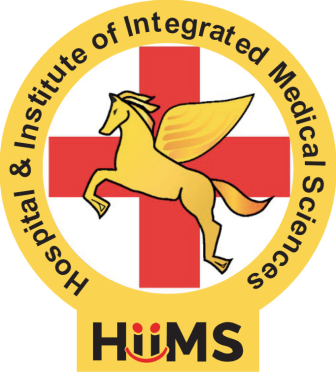Kidneys are small but very important organs that keep the body healthy. They filter blood, remove waste, and help balance fluids. When the kidneys get weak, it can lead to problems like swelling in the feet, feeling tired all the time, or changes in urine color and frequency. Many people in Panchkula face these issues but are unsure where to find safe and effective treatment. Kidney disease treatment in Panchkula at HiiMS Panchkula, a leading Kidney Disease Ayurvedic Hospital Panchkula, provides a natural and holistic approach to support kidney health.
Using Ayurvedic methods, the hospital focuses on improving kidney function through gentle therapies, healthy food, and simple lifestyle changes. Treatments at HiiMS Panchkula aim to restore balance in the body instead of just managing symptoms. By following a structured plan and listening to their body, patients can protect their kidneys, improve energy levels, and maintain long-term health and wellness naturally.
Signals Your Kidneys Are Struggling
Kidney problems often develop quietly. Watch for small signs that might indicate stress on your kidneys:

Noticing these signals early allows you to take timely action and explore Natural Kidney Disease Treatment in Panchkula before the condition advances.
Everyday Choices That Affect Kidney Health
The choices we make every day have a direct impact on kidney function. Regular consumption of processed foods, irregular hydration, lack of physical activity, and inconsistent sleep can gradually burden the kidneys. On the other hand, simple practices such as drinking warm water in the morning, including fresh fruits and vegetables in meals, and engaging in gentle movement can support kidney function. When combined with Ayurvedic Treatment for Kidney Disease in Panchkula, these habits help maintain kidney health naturally and sustainably.
Healing Steps in Ayurveda: The GRAD System
One of the recognized methods for managing kidney conditions is the GRAD system. Many centres offering Chronic Kidney Disease treatment in Panchkula integrate this protocol into their therapies. GRAD includes three important steps:
-
Hot Water Immersion (HWI)
In this therapy, the patient’s body is soaked in warm water at about 42°C. The heat improves circulation and allows the skin to function like a third kidney, helping in the removal of toxins. HWI supports natural urine production, eases swelling, and reduces fatigue, giving relief to those struggling with kidney-related discomfort.
-
Head Down Tilt (HDT)
This technique involves lying with the head at a slight angle lower than the legs (between 5-15 degrees). By using gravity, HDT increases blood flow toward the kidneys, which encourages filtration and supports natural detoxification. Patients often feel lighter as fluid retention is reduced, making it a gentle, supportive method for long-term kidney management.
-
DIP Diet
The DIP Diet provides nutrients in the right order at the right time. Each meal is divided into two plates:
- Breakfast (7-9 AM): Start with seasonal fruits (Plate 1), then a home-cooked or millet-based dish like poha, upma, or daliya (Plate 2).
- Lunch (1-2 PM): Begin with raw vegetable salads (Plate 1), followed by a wholesome meal or millet recipes like khichdi, chapati with vegetables, or dhokla (Plate 2).
- Dinner (before sunset): Combine fruits and salads (Plate 1) with a light homemade vegetable soup (Plate 2).
Key principle: Start each meal with raw fruits or vegetables to prepare digestion for better nutrient absorption.
The GRAD system offers a natural, structured approach, helping patients cleanse, improve circulation, and maintain a balanced diet for sustainable kidney care.
A Day in a Kidney-Friendly Routine
Following the GRAD system is easier when paired with a simple, kidney-friendly daily routine:
- Morning: Begin with warm herbal water to gently cleanse the system.
- Meals: Stick to the DIP Diet to ensure nutrients are absorbed in the right order.
- Activity: Light stretching, yoga, or short walks help improve circulation and energy levels.
- Breathing & Mindfulness: Practicing pranayama or meditation keeps stress low, supporting kidney health.
- Evening: Early, light dinners and adequate rest allow the body to process nutrients and repair itself naturally.
This approach demonstrates that Ayurvedic Treatment for Kidney Disease in Panchkula is not just about therapies, it’s a lifestyle that supports the kidneys every day.
Small Habits, Big Impact
Simple daily practices can significantly support kidney function:

When combined with the GRAD system at a Kidney care hospital in Panchkula or a trusted Kidney Disease Ayurvedic Hospital Panchkula, these simple daily habits help maintain long-term kidney health and overall well-being.
A Healthier Tomorrow, Naturally
Kidneys are central to overall health, and ignoring early signs can lead to serious concerns. Ayurveda in Panchkula provides a chance to approach kidney issues with natural therapies, diet, and mindful living. Families choosing Natural Kidney Disease Treatment in Panchkula find that the holistic methods not only support kidney health but also improve overall well-being. By integrating therapies like the GRAD system with sustainable lifestyle changes, patients can look forward to a healthier tomorrow built on balance and natural healing.

1. Can Ayurveda reverse kidney disease?
It focuses on slowing progression, cleansing toxins, and improving kidney function naturally.
2. Is Ayurvedic treatment safe with ongoing dialysis?
It may be combined with dialysis, but always under expert guidance.
3. How long does Ayurvedic kidney treatment take?
It depends on the stage of the disease and individual response.
4. What role does diet play in Ayurvedic kidney care?
A sattvic diet low in salt and protein helps reduce kidney strain.
5. Are Panchkula-based Ayurvedic treatments effective?
Many clinics in Panchkula follow classical Ayurvedic therapies with positive outcomes.

